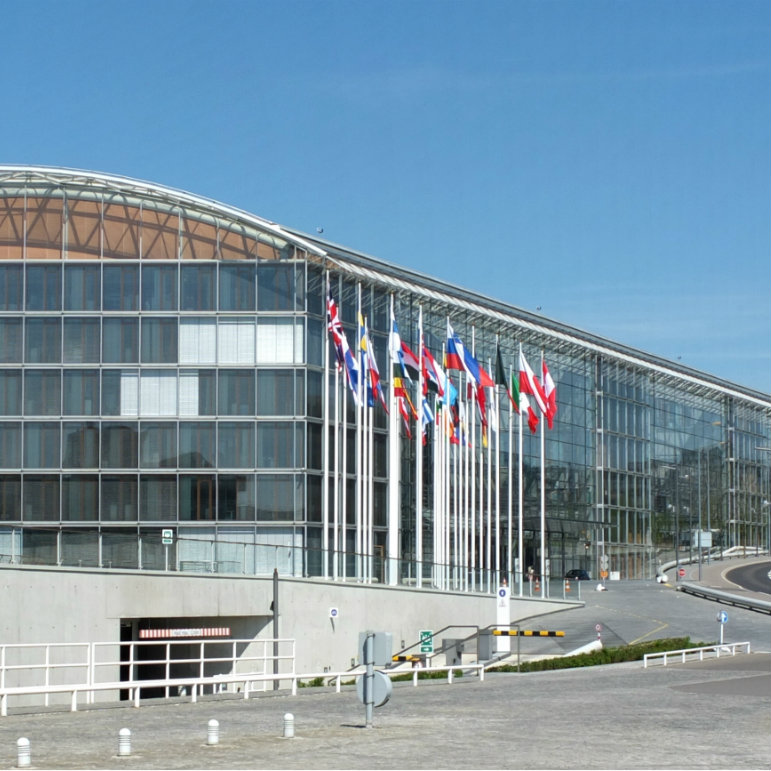
EIB headquarters, Luxembourg (Palauenc05, CC BY-SA)
EIB will finance modernization of the Warsaw-Lublin rail line. The 171-km track is part of the TEN-T North Sea–Baltic Corridor. Some of the funds will also go on rehabilitating the 51km Lukow-Lubartow-Lublin line, which provides an alternative route for freight traffic.
As well as reducing travel times for freight and long distance traffic, the project will help commuter traffic in Warsaw and Lublin by the construction of new tracks to increase capacity and meet rising demand.
“The EIB loan will help to improve Poland’s railways along a strategic Trans-European transport corridor with positive consequences for the environment, transport safety, capacity and speed. This will help to improve the quality of life of passengers, particularly people commuting to work in Warsaw and Lublin, as well as modernizing the transport links needed to help further Poland’s economic development,” EIB Vice-President László Baranyay, responsible for the bank’s operations in Central European countries, said.
The North Sea – Baltic Corridor runs from Belgium and Netherlands to Finland via Germany, Poland, Baltic States, linking Antwerp, Rotterdam, and Amsterdam with the Baltic ports of Klaipeda, Riga, Tallinn, and Helsinki.
Meanwhile another European financial institution, the European Bank for Reconstruction and Development (EBRD), plans to invest up to EUR700m. Part of the money will go on a project to help the Warsaw Stock Exchange (WSE) return to growth.
State-controlled WSE – which has surpassed Vienna to become Central and Eastern Europe’s largest equity market – has seen its capitalization fall 26 per cent year-on-year to PLN1 trillion (USD260bn). While Vienna and Budapest stock indexes have risen 6.5 per cent and 7.7 per cent, respectively, since the start of 2015, Warsaw’s main WIG20 has lost 17 per cent.
Banks and utilities – the two largest Warsaw-listed sectors – have been hit by the government’s bank asset tax and its insistence on making state-run power producers help out Poland’s loss-making coal miners. „We would very much like to support reversing the negative trend,” the EBRD’s Polish director Grzegorz Zielinski told Reuters.
The banking sector also faces a potential bill for converting Swiss-franc mortgages into zlotys. Current proposals could cost lenders PLN67bn.

